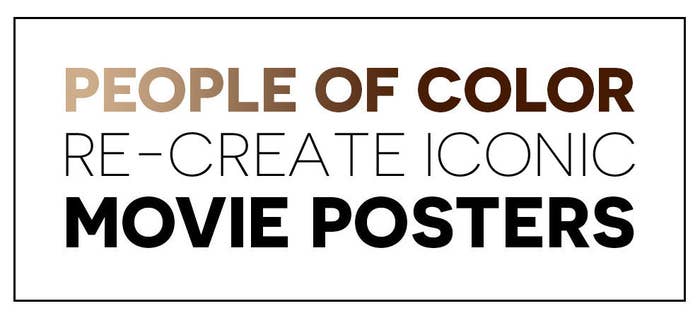
Check out the video here:
View this video on YouTube
As people of color, we often don't see ourselves represented in the media. We grew up watching white people dominate our television and movie screens, wondering where the people that looked like us were.
Minorities make up nearly 40% of the population in the United States, yet we only represent 16% of the roles in Hollywood. 94% of film executives are white, which may explain the lack of diversity in movies.
We had professional actors and BuzzFeed employees recreate iconic movie posters and write about their experience. We think it's important for people of color to see that they can play love interests, dramatic leads, and humorous roles. People of color are more than just token sidekicks.

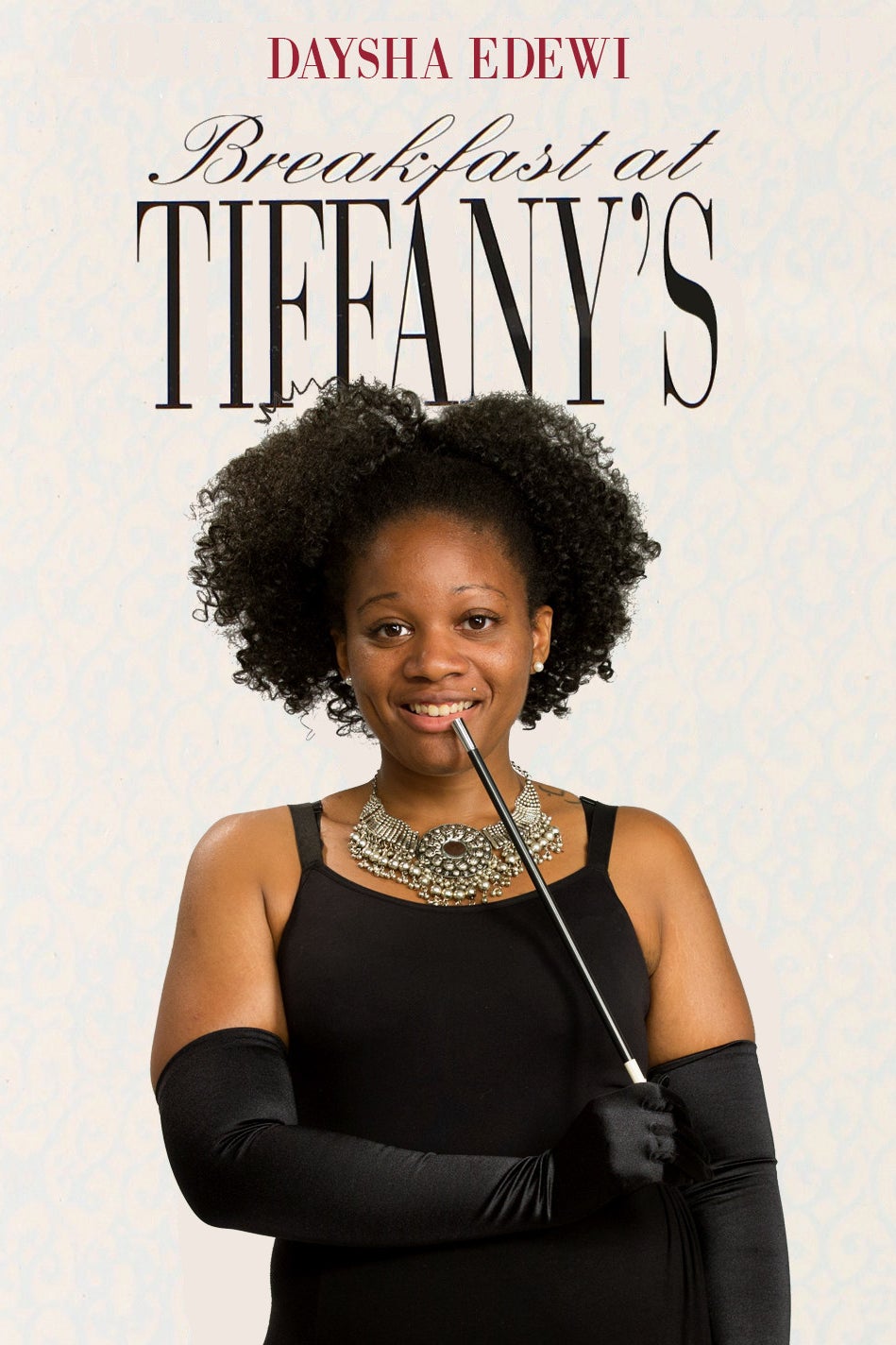

Daysha Edewi (Holly Golightly): "It's unfortunate that we still can't seem to have dynamic, three-dimensional main characters that also happen to be people of color, especially in film. It's crazy that minorities make up a huge amount of box office sales for movies, and yet it is rare to see one in a leading role that does not have to do with their race. My race is important to me, but I am a woman just as much as I am a black woman. I was really excited to get to play Holly Golightly. She's so classy but also sultry, which is what I try to embody in my day-to-day life.
"I can't even with the idea of 'traditionally white roles.' These are fictional people and situations. Anyone can play these roles. I think people's anger stems from the fact that seeing a person of color in a three-dimensional role threatens everything they were taught to believe and understand about certain racial groups."
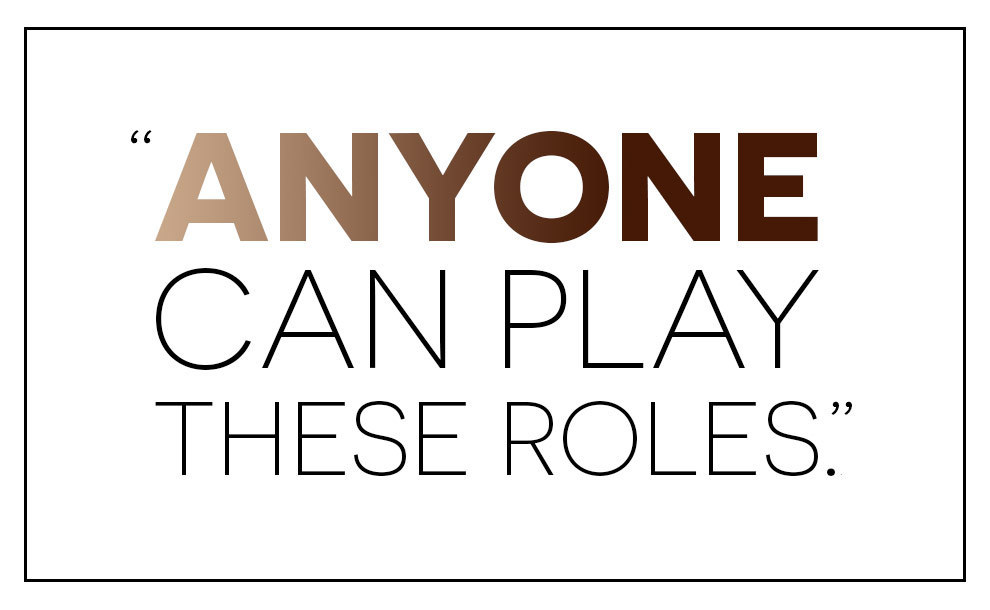



Sony Mathew (Rose): "I was super excited to be a part of a project that was fun and different. I wanted to be the best Rose I could be! Hollywood needs to work on mixing up the roles more, instead of typecasting so much."
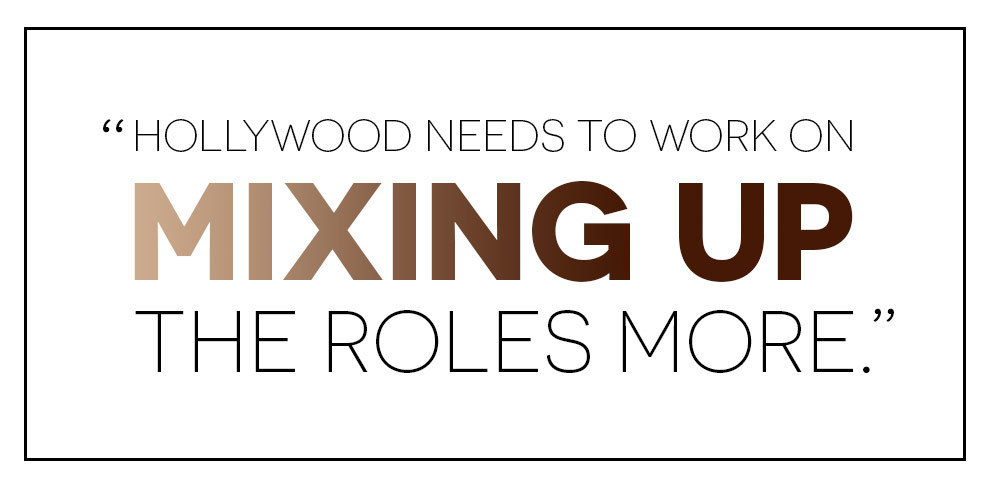

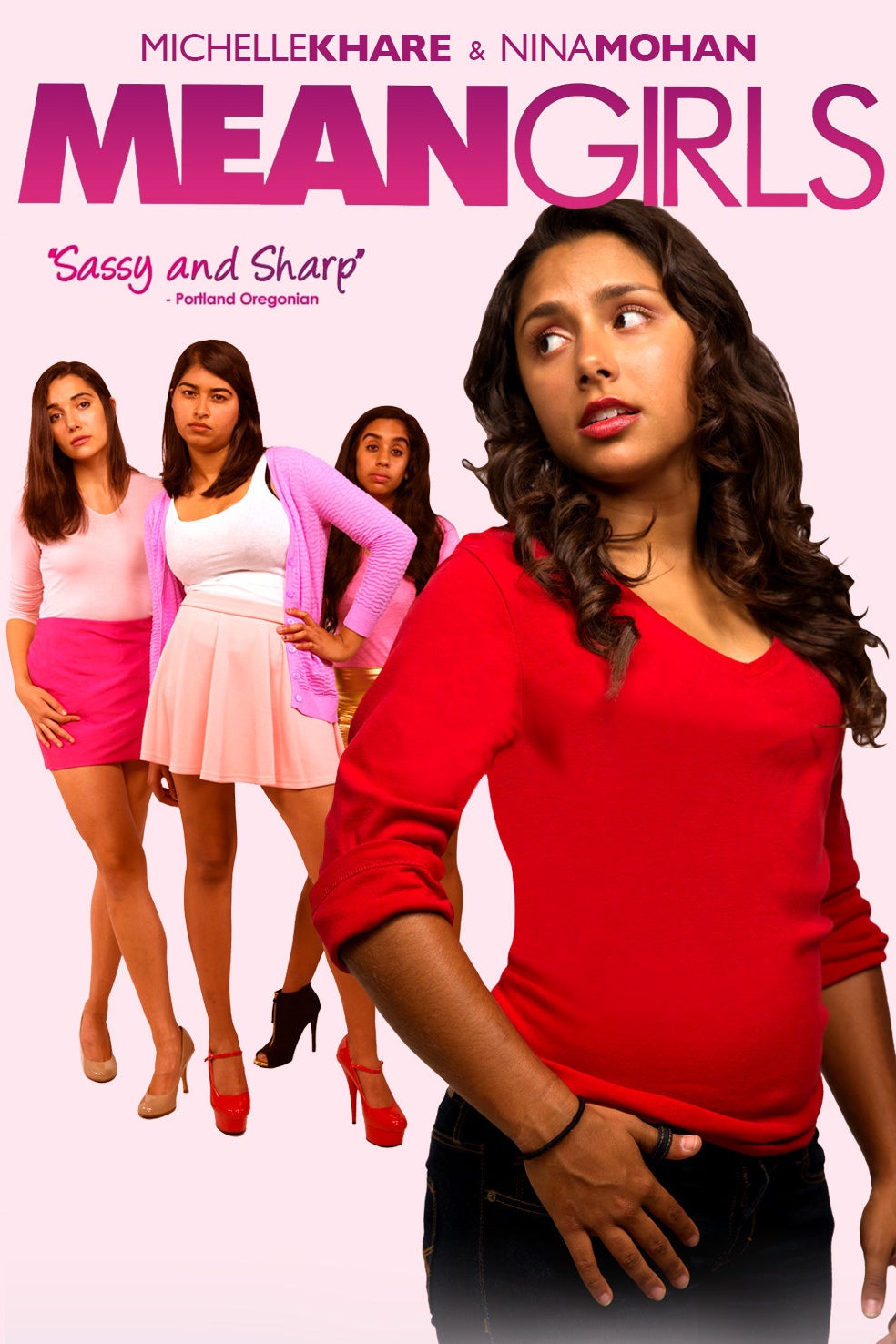

Michelle Khare (Cady): "I remember wanting to work in entertainment but people said I had to try to pass as Latina or some other race because I didn't look Indian enough. I really wish that there were both more races portrayed on TV as well as multiracial families. I was nervous that I wouldn't look believable as my character because I am not white, but I really think the final product is so beautiful and also believable."
Noor Gill (Regina): "The media has a lot of power over what our society thinks is beautiful, and expanding the types of features we see on the screen would be a great thing. I was a bit nervous going into the shoot, but after putting on the clothes and interacting with the other people on set, I realized that the shoot was more about having fun celebrating people of color."
Safiya Nygaard (Karen): "When I was growing up, I didn't see anyone like me on the TV I watched. I always loved acting and writing and looked up to the characters on my favorite TV shows. I honestly grew up wishing I was Lizzie McGuire (which I still kind of wish, but for different reasons). It comes down to people not believing that empathy can transcend race. But people of color can and do watch and love and relate to media featuring white people. Why can't it work the other way? We're all people."
Nina Mohan (Gretchen): "I remember being cast as the little sister in an opera and no one would shut the fuck up about how I was brown even though the family was white. I thought, Can't we suspend our disbelief for like two hours? It sucks when people can't focus on anything but the color of your skin. The girls in this movie don't need to be white. It was empowering to be able to play a character I identify with (I'm all about my curly hair and gossip) without people trying to tack on some racial angle."
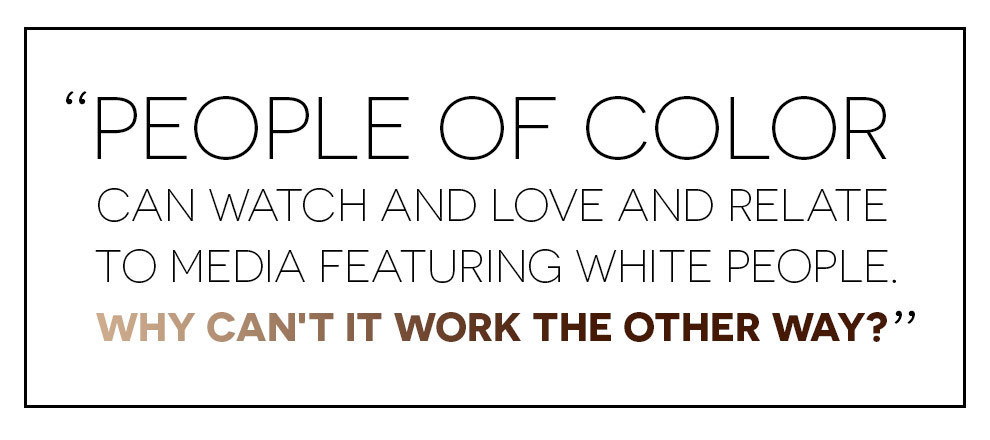

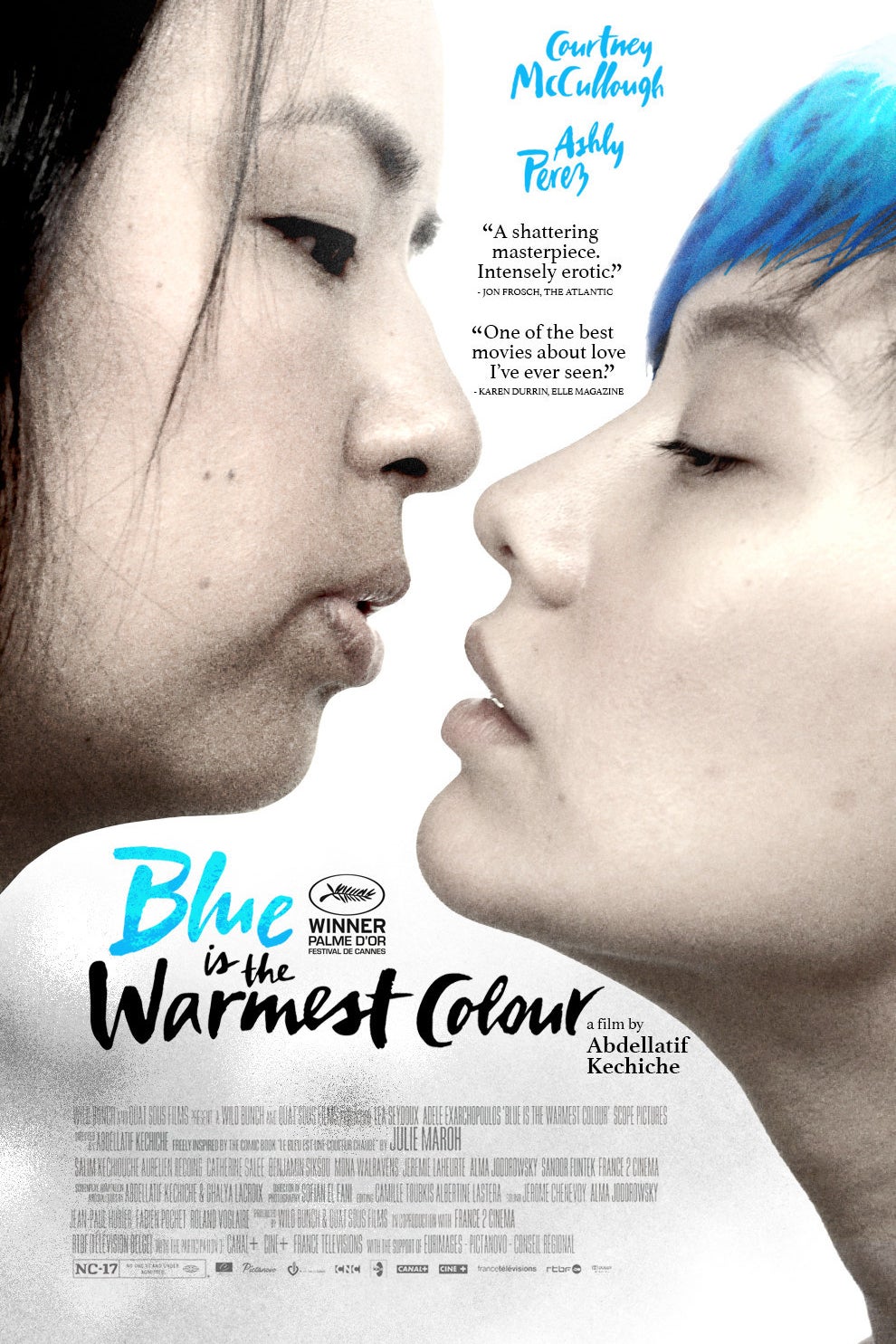

Ashly Perez (Adèle): "As an Asian woman I feel completely invisible in the media. Growing up I had Mulan (a cartoon) and Lucy Liu, and that was about it. People of color in film don't get to be full, vibrant, or real. I felt a little bit strange, because I was playing a role that you never really see in media: people of color, people in the LGBT community, in love. We are almost never afforded the luxury of romance. I was outside my comfort zone at first. But then when I started to realize what it means to see people in traditionally white roles, I felt more at ease."
Courtney McCullough (Emma): "As an Asian American, I'm expected to be some exotic, ESL-speaking (English as a second language) martial arts master (I do have a black belt in tae kwon do, but that's neither here nor there). I was auditioning for a commercial where a white man higher up in the room asked me to do it more 'fresh off the boat.' So I put on my fob-tastic accent and over-the-top toothy smile. The room was cracking up. I felt like an idiot because English is my native language and, actually, both my parents were born in L.A. I was basically creating a caricature based on nobody I actually knew just to appease a bunch of white people with the power to give me a job. Here, I made the character my own so I portrayed her with my own honesty."
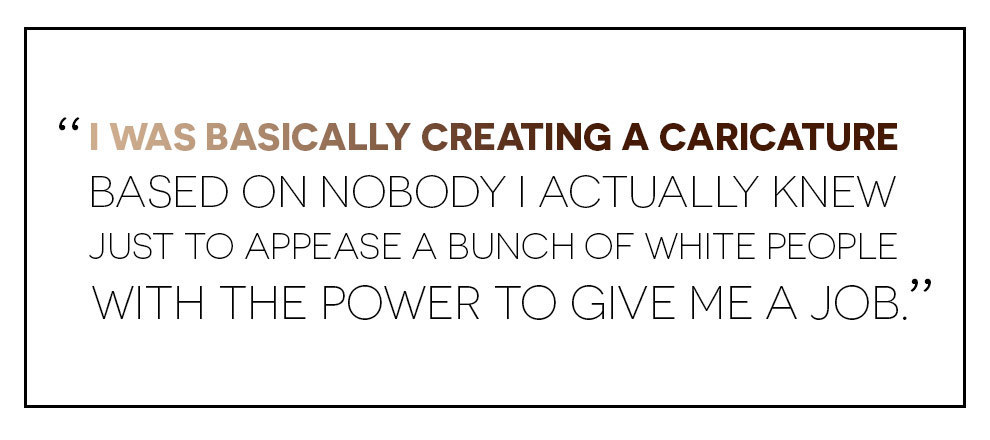

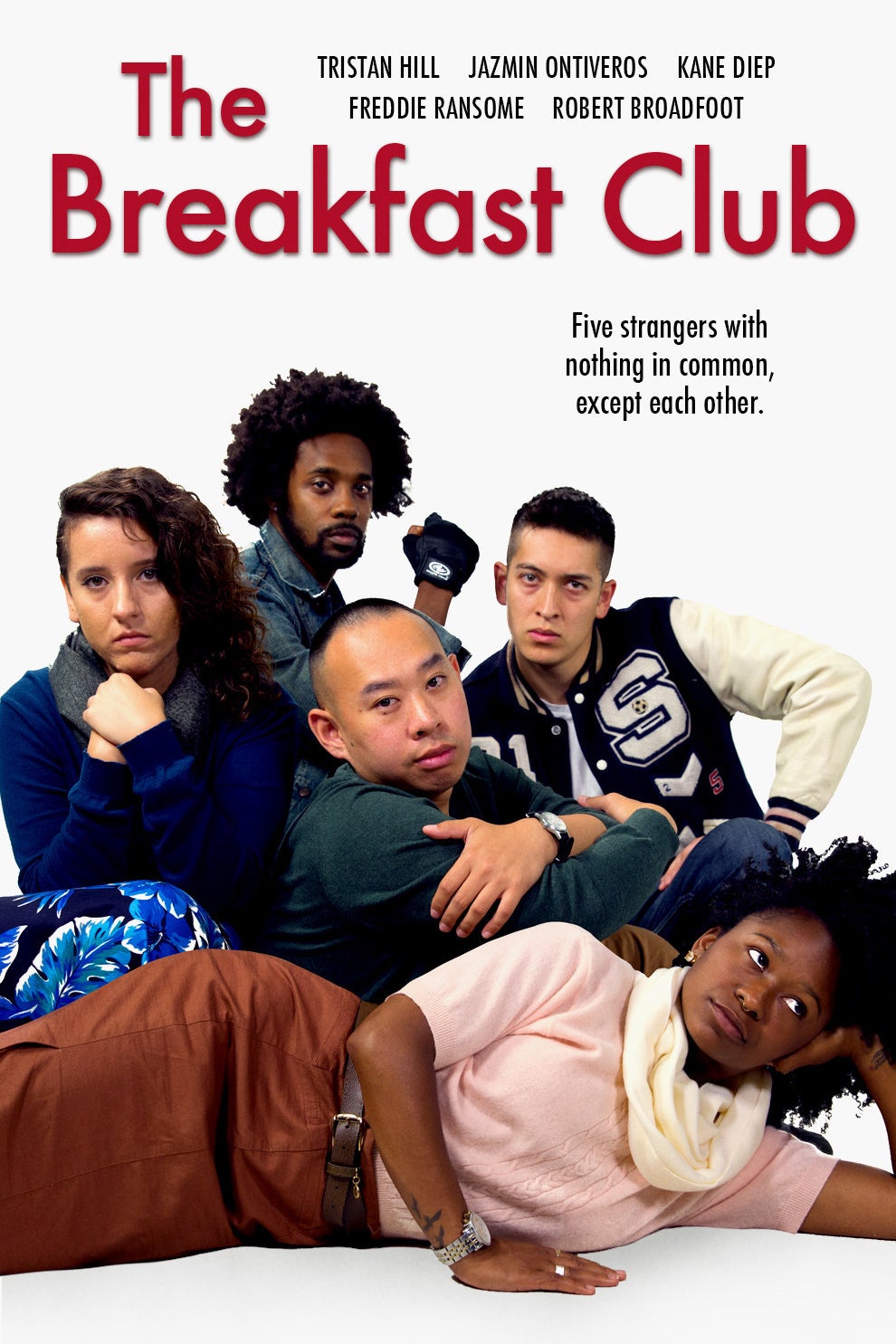
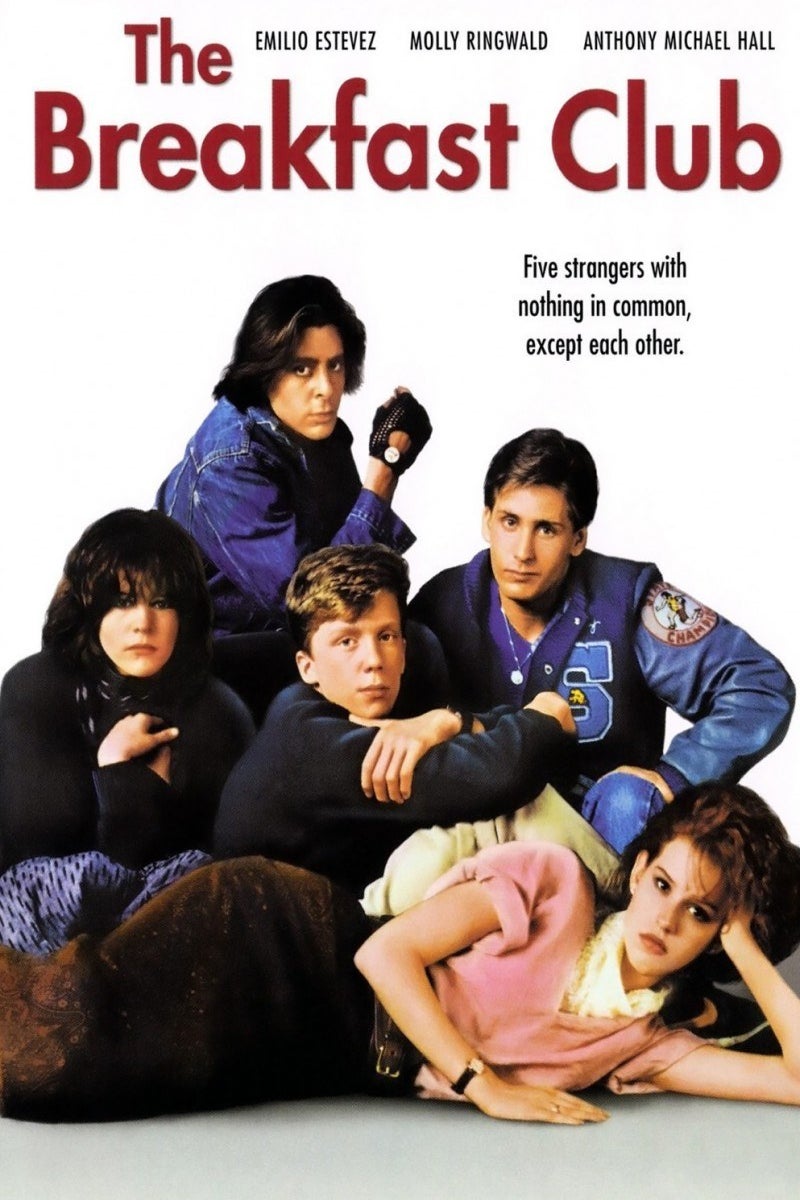
Jazmin Ontiveros (Allison): "People of color typically play roles that perpetuate stereotypes. Allison was the silent high school girl who often went unnoticed. This character is not based on being white. Being a part of this beautiful experience was very inspiring. It gives me hope for the future of Hollywood."
Tristan Hill (Bender): "I feel that often, the roles are usually limited to either gangster #1 or hot dog vendor #3, and we shouldn't have to settle for those roles. It's bothersome when you watch films like The Lord of the Rings, which has walking, talking trees but no real people of color. The Breakfast Club is an awesome movie, and I was cast as my favorite character. It was fun, because you actually start to see that these roles could have been played by any type of person. People of color just get overlooked."
Kane Diep (Brian): "It felt really good to be featured in a diverse cast. Even though we weren't shooting an actual film, it felt good to be projected and placed in a photo where the spotlight showcases people of different races hanging out. Our stories and lives are just as important. Like, yeah, of course we do and say interesting things. We existed in school. Yeah, we work. Yeah, we're in relationships. Yeah, we experience heartbreak. Yeah, we are people too. Hopefully actual movies with posters like these will exist in local theaters near you soon. They shouldn't only stay as parody posters online."
Freddie Ransome (Claire): "These movies are SO iconic, and I think that because they're classics, it can be easy to overlook the lack of diversity in the casting. White is default. Most of the people doing the casting are white, and it takes a certain level of consciousness to cast people of color in non-race-specific roles. The qualities and characteristics of Molly Ringwald's character can cross color lines and be relevant to anyone, regardless of race. I could totally kill the role of Claire."
Robert Broadfoot (Andy): "I didn't dive into acting when I first moved to L.A. because I'm either not Chinese enough for a particular 'Chinese' role or not white enough for that particular 'all-American' role. When you're a person of color, there's this weird pressure that you are defined by your race. It's unfortunate that being a person of color comes with this baggage. The character is a high school jock, so I posed as a high school jock. I didn't even think about the fact that he was white. It has nothing to do with the story."
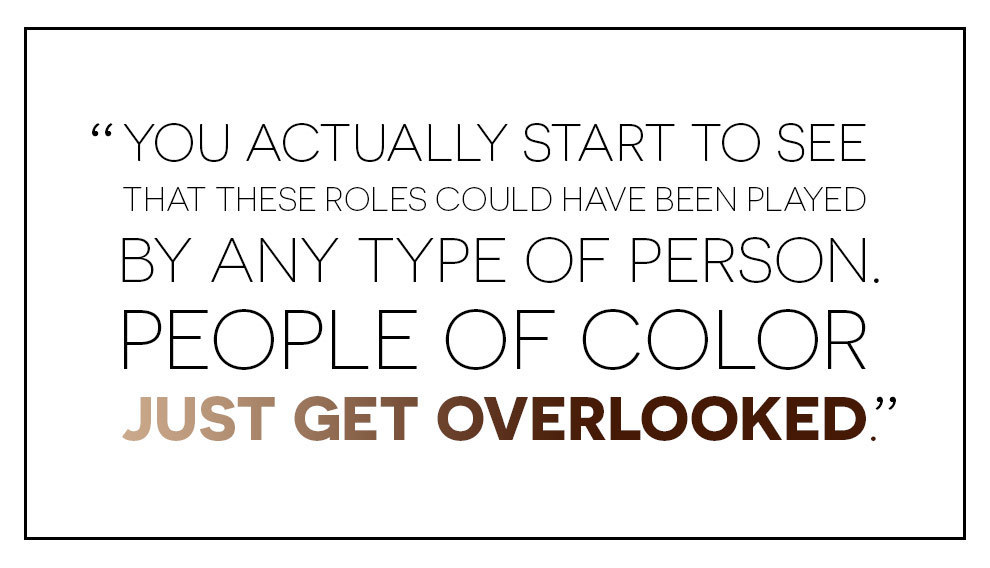

Daysha: "I think we could stop acting like there aren't talented POC talent in entertainment (both in front of and behind the camera) and allow them the opportunity to tell their stories. Getting to see all these posters in the end just proved to me how important it is that we get more diverse storytelling in film. I would honestly watch every single movie."
Michelle: "It made me feel strong and confident that someone who looks like me could be in the limelight. Just fucking cast people of color! Time and time again diversity hits a wider audience and it pays off!"
Noor: "We have a long history of white actors playing ethnic roles and have almost no history of the other way around. The only way to remedy this is by casting actors of color for traditionally white roles all the time. Hopefully in the future we won't need a reason to cast people of color. We just will."
Safiya: "Change isn't always easy. People are uncomfortable because it's something they're not used to seeing. We just have to keep showing up, keep writing, acting, producing, and being undeniable — and eventually it won't even be a discussion."
Nina: We need to stop accepting white people as the default. People of color shouldn't be pigeonholed into only telling stories about race. We can be romantic leads, comedic relief. We are relatable."
Ashly: "Things change when people decide to make the media they want to see. If you're a person of color or a woman of color, I'd encourage you to get out there and tell your story. That's how things will change."
Courtney: "People are so used to seeing white protagonists in movies and TV shows that perhaps they've become programmed to accept white characters as then norm. If studios don't want to bank on a nonwhite lead, they should at least try to cast more minority actors in smaller roles."
Jazmin: "We can't wait around for the current people in Hollywood to tell our stories. We need people of color in all aspects of filmmaking. More POC directors, producers, screenwriters, and other lead film productions roles."
Tristan: "I would love to see people of color included in every film, but I don't want someone who doesn't know my culture to write for my culture. Being involved in this is why I wanted to work here. These are the types of conversations and imagery we should be seeing across the board in all types of art."
Kane: White people have been trying to play people of color since forever, and it almost seems like a given sometimes because people are so used to it. It's especially unfair since roles for nonwhite actors are so few and far between that when one is taken, it's a big deal. Tell more diverse stories. Encourage and hire people of color to write, direct, and produce movies."
Robert: "Hollywood simply needs to cast more racially diverse people, so we get films where your race isn't an issue anymore."
Freddie: "Hollywood needs to be diversified across the board — behind the scenes and in front. It's one thing to talk about diversifying movies and media, but to actually see it carried out on movie posters is next level. I'd watch ALL these movies."
